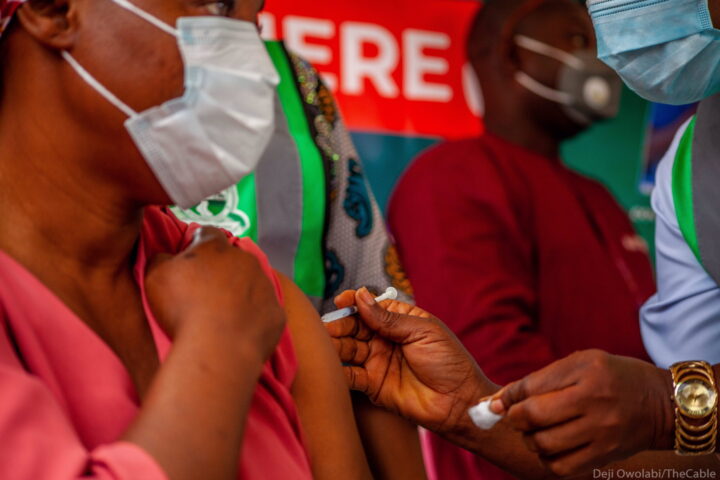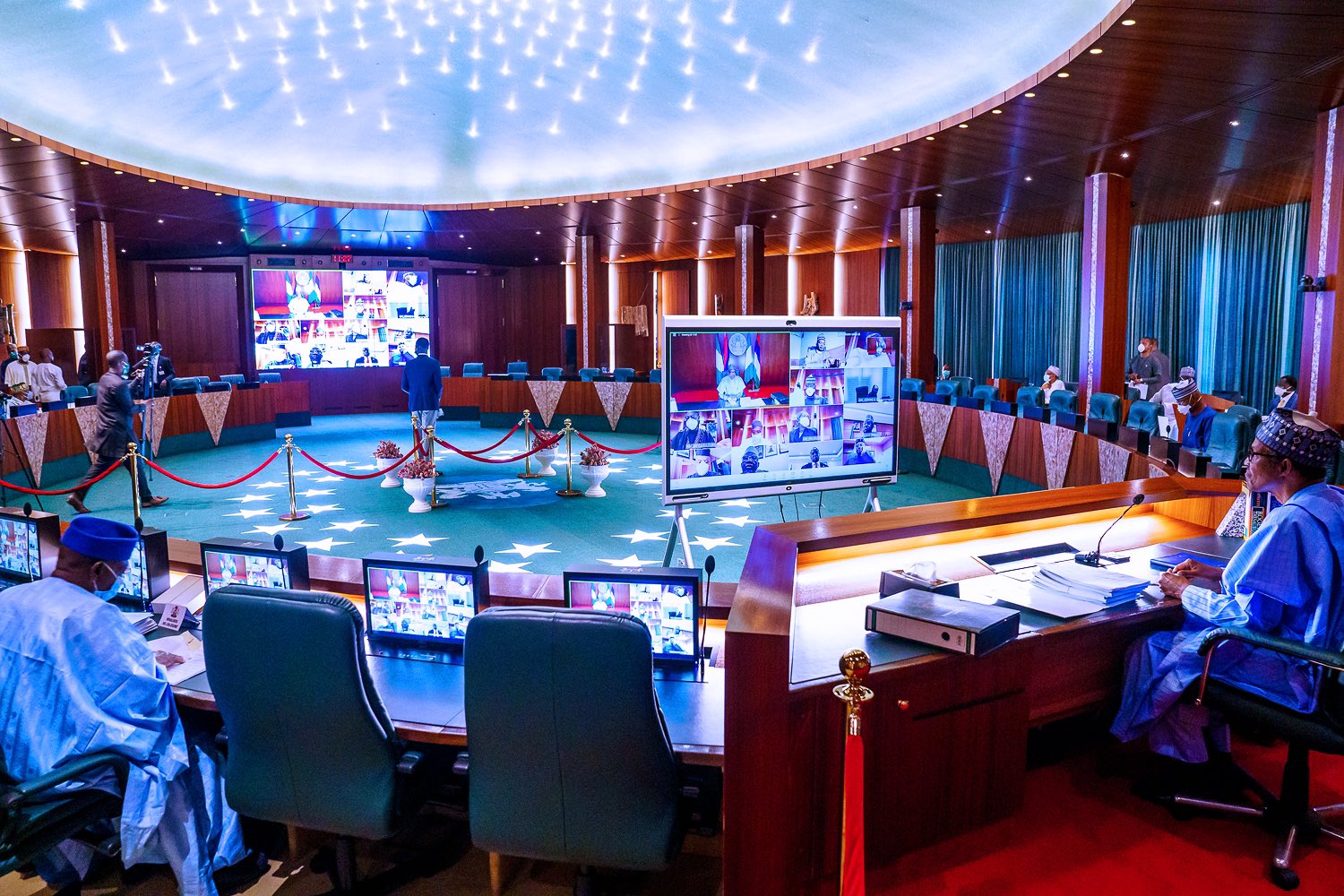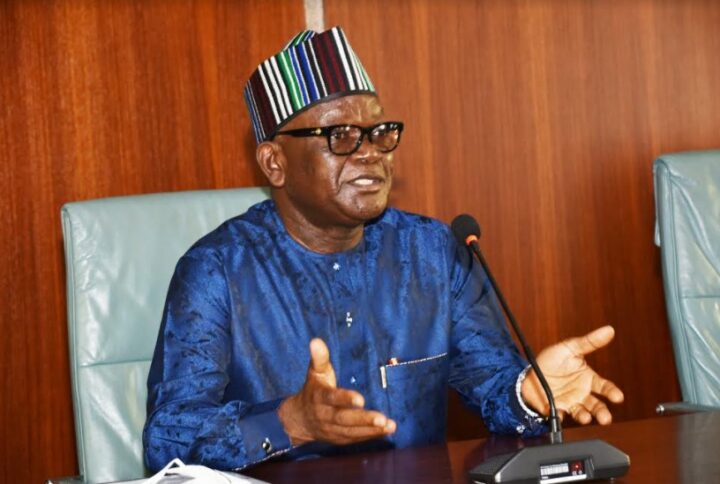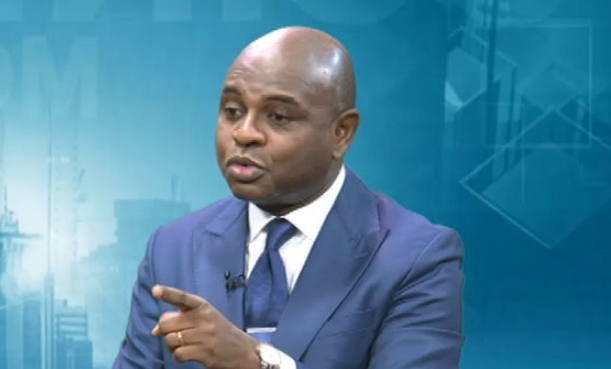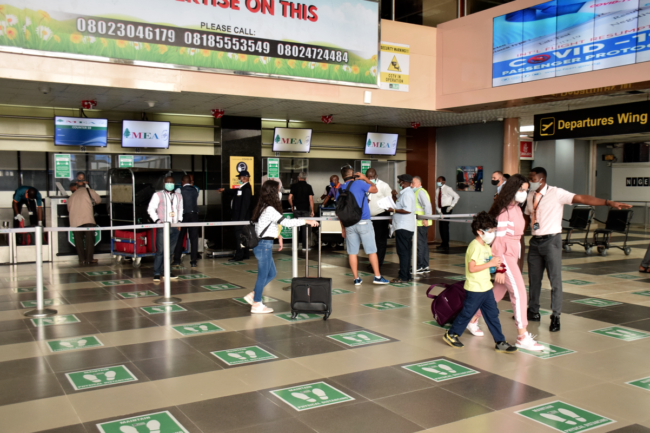A group of emaciated children during the civil war in Biafra (now part of Nigeria), 1970. (Photo by Romano Cagnoni/Hulton Archive/Getty Images)
BY SONNY OGUNLEWE
The groundswells of division, discord, disintegration gale of and even war currently cascading ominously in Nigeria should be a huge concern to all well-meaning Nigerians, given the catastrophic scenarios that defined the 1967-1970 civil war in Nigeria. A recap from my own little prism is indeed telling. I was born during the Nigerian civil war in the late sixties. I might not have experienced the war in the literal sense but I felt the devastation of the long-drawn strife. Its physical, physiological, and psychological impacts on me are still resonating. In my kindred in Ahiazu Mbaise Local Government in Imo state, we were well over thirty-two children born during the war; only about twelve of us were lucky to mark our sixth birthday. The rest precious kids died of either kwashiorkor, enemy bullets, rockets, diseases, or were simply abandoned by their parents. Out of twelve of us who were alive at the end of the war in 1970, four died before they attained the age of ten due to the consequences of the hard conditions that we were exposed at the refugee camps.
Today, we are only five alive. One of us has had hearing defects since age 6. The rest are no more because either both parents died during the war. So they ended up poor and miserable and died of curable diseases. I was lucky because my parents were teachers and managed to sponsor me to the university level. Imagine if my little friends’ parents were alive, perhaps, many of them would have been like me today, valuable to society. They died with their dreams unfulfilled. I still remember a few of them especially my primary school mates who dropped out of school because we used to make jest of them that they were Hausas. They could not stomach the stigma. They were innocent products of rape and living evidence of conquest impunity of the federal troops against Ibo women during the civil war.
During the long treks through the forests as a result of indiscriminate bombings from the federal troops, my mother would tie me on her back, while my father carried a few of our belongings on his bicycle. I would cry uncontrollably of hunger and instead of food my mother would cover my mouth with her palms to avoid attracting attention. I am happy to be alive to tell this story. We spent days at a primary school in Ikeduru which served as a refugee camp. Children and adults died daily in their numbers. Dying became a way of life and the dead were not mourned because there were no more tears. Refugees defecated indiscriminately; mothers took their baths in the open while adults and children looked on. It was a state of hopelessness.
Advertisement
My uncle, a wealthy merchant had a horrifying experience. He had houses in Port Harcourt and Aba. At the end of the war, he went to his Port Harcourt house to pick some documents. He was shocked by what he saw. A family of eight had occupied his house and was never allowed access to his house and vital documents. The illegal occupier perfected the documents of the house in his name. No thanks to the abandoned property policy of the Gowon administration. My uncle was also denied access to the huge funds he deposited with the banks but was only allowed to withdraw 20 pounds as was the post-war policy. The man was heartbroken and died as a result.
My decades of angst over the Nigerian civil war reechoed Sunday morning, September, 12 while watching CNN news on Somali refugees in Kenya. CNN reported that the Kenyan government had set June 2022 for the final and permanent closure of the refugee camps in Kenya that had housed Somali refugees for over thirty years. Most of the refugees interviewed expressed the fear and apprehension that they had not known any other home other than the camp, as many of them were born and raised at the camps without access to formal education and skills. This image eloquently captures inherent evil in war
It is evident that war is abhorrent and leads to suffering and long-drawn misery. Every effort must therefore be made by the leaders and the led to avoid war. It is regrettable that some sections of the country that have not had direct experience of war and as a result unmindful of its agonizing consequences are speaking with unbridled arrogance in the face of the unfolding drumbeats of disintegration capable of resulting in war. Such unrestrained, misplaced comments are capable of propelling the other regions particularly the South East into stoking embers of discord and inexorable war. Let no region provoke the other into picking up arms. We should understand that another war will not be in the best interest of the nation-state, Nigeria. It will be fought from many flanks- Ijaws, Edo, Urhobo, the Jukuns, the Bokos, the Tivs, and even the Hausas, etc- at the end, the outcome will be so devastating that all the egotism will evaporate and everyone will begin to pick his pieces as the Ibos did at the end of the 3-year civil war. These realities make it compelling for the likes of Prof Usman, AGF, Malami, and the presidential spokesman, Shehu Garba to exhibit restraint over comments that are capable of destroying the nation’s delicate diversities.
Advertisement
The trajectories of war are unpredictable, uncertain and often convoluted, leaving behind a cascade of unimaginable damage in society. The socio-political underpinnings of war are mostly daunted with a chequered history of perennial crises of nationhood. Nigeria’s fate has been rescued with the restoration of the nation-state after the civil war. Many nations hardly survive or have the luck of a satchel to rebuild. Somali is a clear example. The unintended consequences of war could be vast and far-reaching. It is the dangers and signposts that war portends and projects that often usher in great leaders of thought whose main duty is to chart the course of sustainable peace and development. Polarization is not part of the desk of cards for nation-building. Neither is ethnoreligious myopism a state craft that should or would uplift a nation to greater heights. The time to act is now and urgently at that
Sonny Ogulewe, a public affairs analyst, wrote from Abuja
Views expressed by contributors are strictly personal and not of TheCable.
Add a comment

